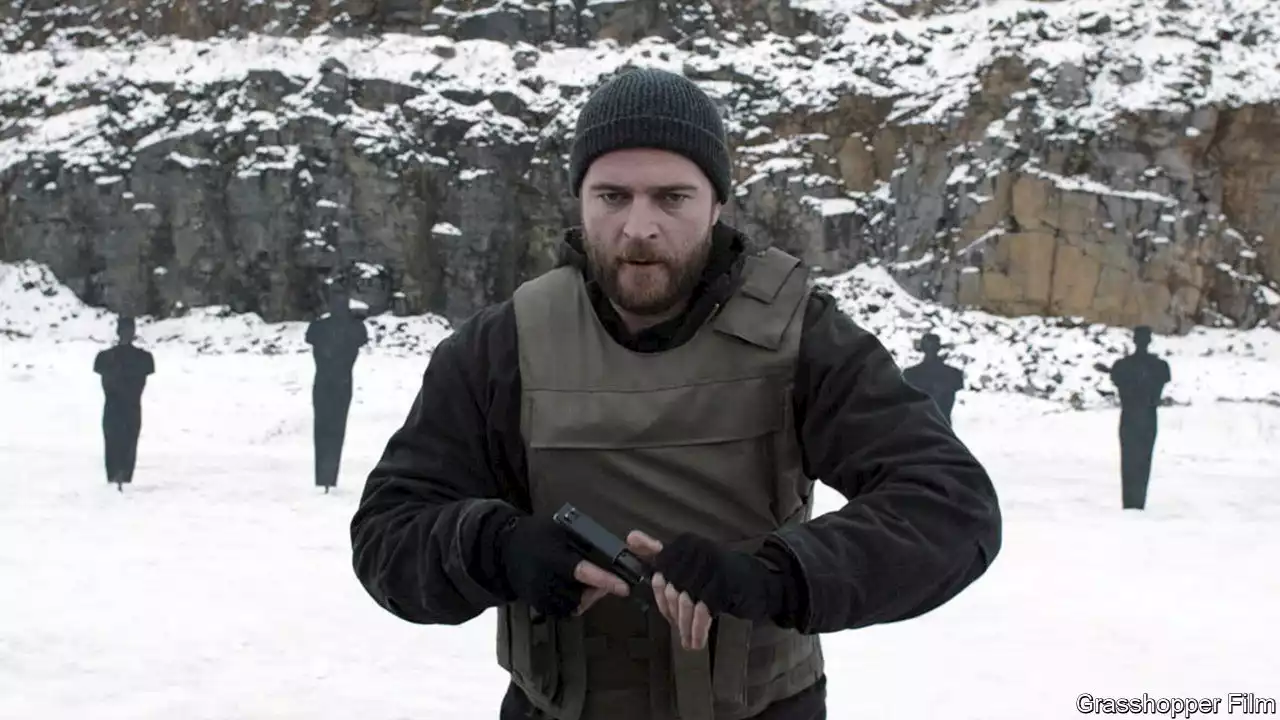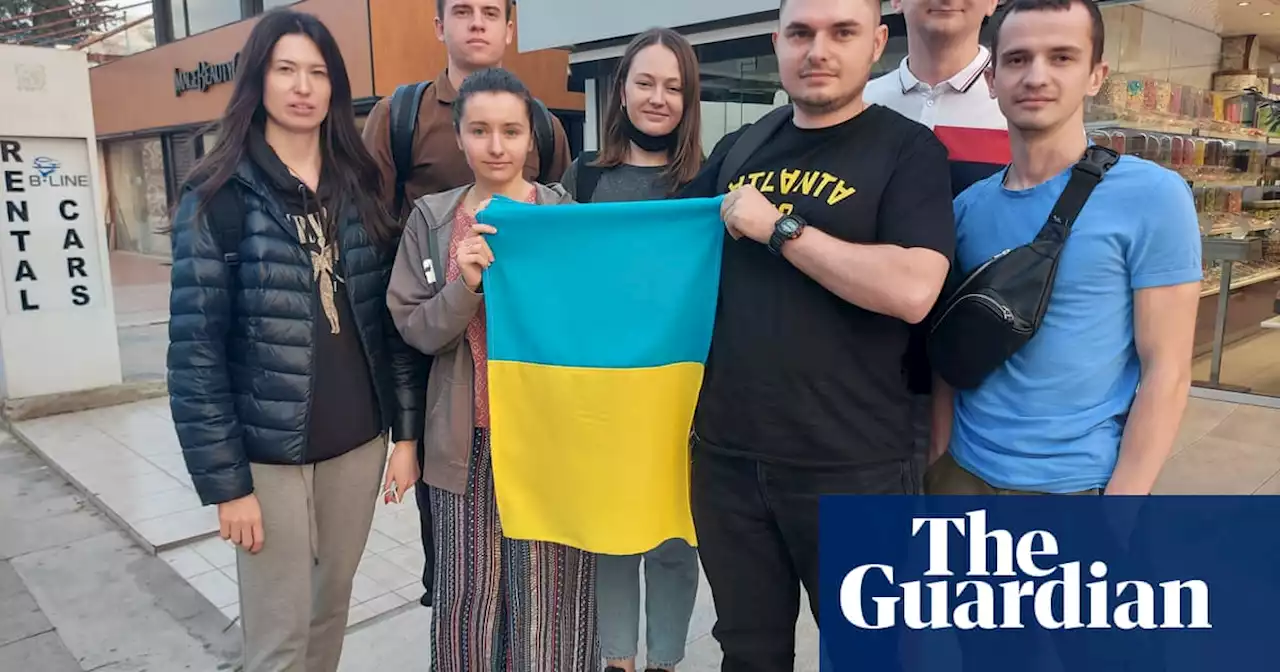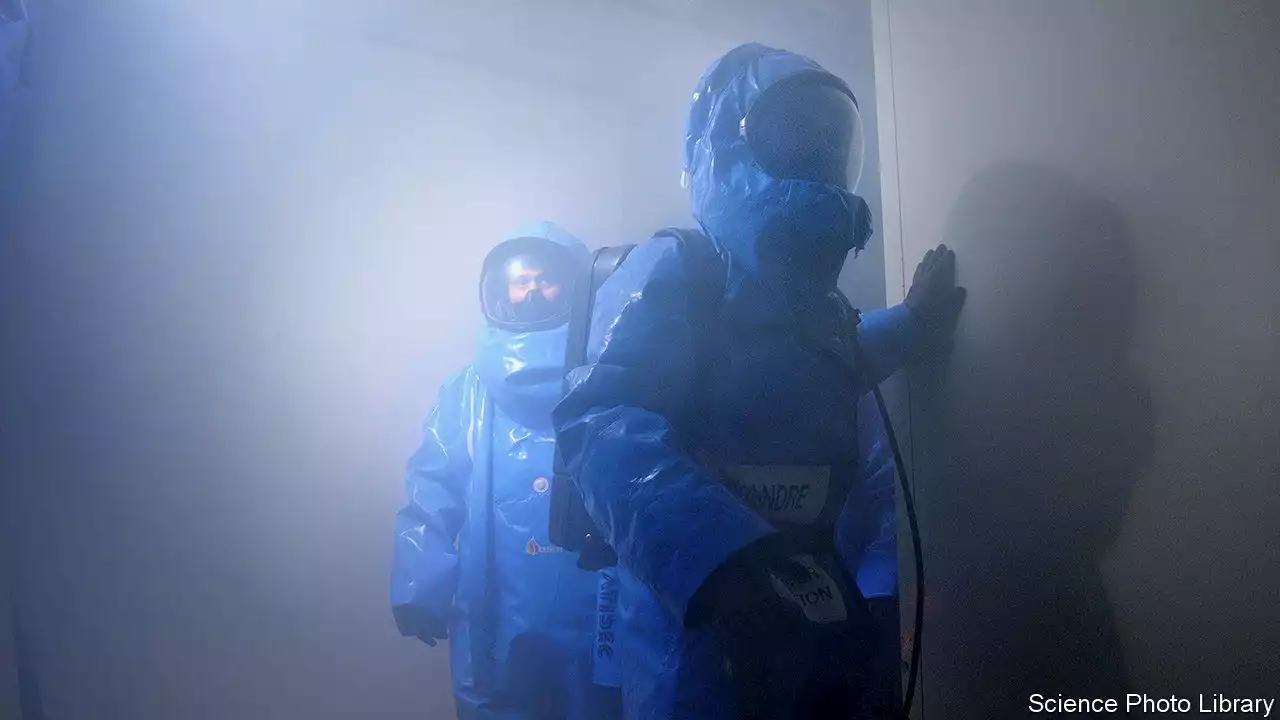What is the difference between biological and chemical weapons, and why are the former so troubling? We explain
. On March 23rd, ahead of a NATO summit, Jens Stoltenberg, the alliance’s secretary-general, said he expected its members to provide “equipment to help Ukraine protect against chemical, biological, radiological and nuclear threats”. The use of chemical weapons would be nothing new for Russia: it has previously used them in attempted assassinations, and the Syrian regime that it backs has used. The use of biological weapons, though, would be novel—and potentially more deadly.
Chemical weapons, as the name suggests, involve the use of toxic chemicals to harm an enemy. Biological weapons specifically involve the use of living organisms, although some expand the definition to include the toxins such organisms can produce. Using living things as a weapon has a long history. The Ancient Greeks are thought to have put animal corpses in enemies’ wells, the bacteria poisoning the water. As biotechnology developed, so did weapons.
These weapons could be very dangerous. Models suggest a kilogram of anthrax, dropped on a city, could kill 100,000 people. Agricultural weapons could wipe out a country’s food supply and cripple its economy. And infectious pathogens, such as smallpox or coronaviruses, can quickly take on a “life of their own”, says Filippa Lentzos, a biosecurity researcher at King’s College London.
Weak international oversight exacerbates the danger. Although the UN’s Biological Weapons Convention bans the development or use of the weapons, there is no way to verify if countries are complying. Only three people work on the convention full-time, with a budget of just $1.5m a year. And it does not have a built-in mechanism for investigating the weapons’ use: only the UN secretary-general has the authority to investigate.
America has not presented any evidence supporting its claims that Russia is developing biological weapons. But it would not be surprising if it were true. Boris Yeltsin, a former Russian president, admitted that his country once had a biological weapons programme, and researchers suspect Russia holds onto the pathogens it developed then. But while some evidence suggests a biological weapons programme still exists, it is unclear how competent it is.
United Kingdom Latest News, United Kingdom Headlines
Similar News:You can also read news stories similar to this one that we have collected from other news sources.
 “Atlantis” envisaged the aftermath of a Russia-Ukraine warDistributors have seized the opportunity to screen Valentyn Vasyanovych’s film of 2019, in which Ukraine emerges victorious
“Atlantis” envisaged the aftermath of a Russia-Ukraine warDistributors have seized the opportunity to screen Valentyn Vasyanovych’s film of 2019, in which Ukraine emerges victorious
Read more »
 Nato needs permanent force in eastern Europe to deter Russia, says EstoniaEurope and North Atlantic alliance could never return to the world it knew before the Ukraine invasion, says Jonatan Vseviov
Nato needs permanent force in eastern Europe to deter Russia, says EstoniaEurope and North Atlantic alliance could never return to the world it knew before the Ukraine invasion, says Jonatan Vseviov
Read more »
 Biden slams ally India for being 'shaky' in condemning RussiaPresident Joe Biden singled out India among the Quad group of countries as 'somewhat shaky' in acting against Russian President Vladimir Putin over its invasion of Ukraine.
Biden slams ally India for being 'shaky' in condemning RussiaPresident Joe Biden singled out India among the Quad group of countries as 'somewhat shaky' in acting against Russian President Vladimir Putin over its invasion of Ukraine.
Read more »
 'War will not end easily’ warns US as West set to impose fresh sanctions on RussiaTHE UNITED STATES and Western Allies have been drawn together by the conflict in Ukraine and are set to impose fresh sanctions on Russia, according to reports.
'War will not end easily’ warns US as West set to impose fresh sanctions on RussiaTHE UNITED STATES and Western Allies have been drawn together by the conflict in Ukraine and are set to impose fresh sanctions on Russia, according to reports.
Read more »
 Cyprus: displaced Ukrainians adjust to life in Russia-friendly resortOnce known as a refuge for wealthy Russians, the tiny state has taken in more than 3,000 Ukrainians since the start of Putin’s invasion
Cyprus: displaced Ukrainians adjust to life in Russia-friendly resortOnce known as a refuge for wealthy Russians, the tiny state has taken in more than 3,000 Ukrainians since the start of Putin’s invasion
Read more »
